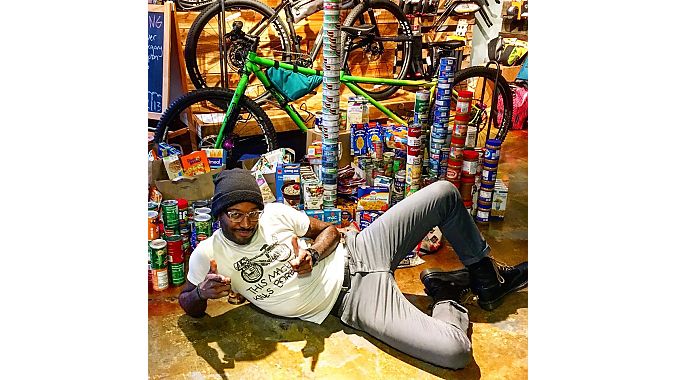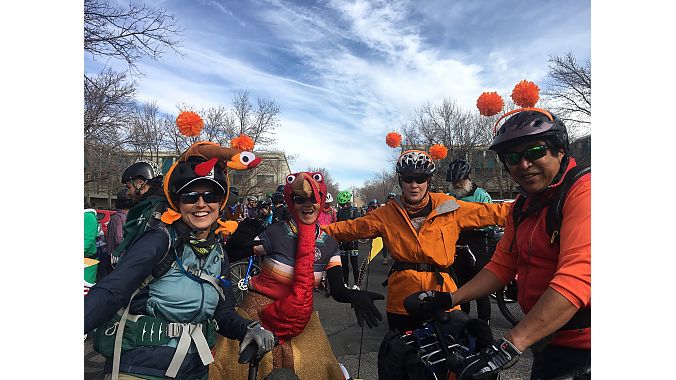SANTA FE, N.M. (BRAIN) — Bill Lane succinctly sums up what's involved in organizing the nationwide Cranksgiving food drive.
"Managing a movement like this is similar to herding alley cats — albeit charitable alley cats," said Lane, marketing director of distributor BTI.
BTI became the national organizer in September for the bicycle food drive that started in 1999. With 106 events scheduled in 42 states this year, local organizers team with area charities to form a list of food needs and map out routes to local grocery stores for cyclists to follow and buy food with their own money.
Bicycle messenger Antonio Rodrigues created Cranksgiving as a pure street race, with grocery stores serving as checkpoints.
"Cranksgiving is an open concept," said Lane, who helped run a Santa Fe Cranksgiving event for 11 years. "Though it's based off the (bicycle messenger races), it's easily tailored to fit local ridership. Sure, a few are pure old-school fixed-gear races, but they are in the minority. Many incorporate short routes that are family friendly and long routes for folks that want to go fast/far. Cranksgiving can take any form as long as food is collected and it is done on a bike. Enduro, gravel grinder? Bring it on!"
Local organizers are a mix of advocacy groups, clubs, retailers and individuals. Retailers make up about 25-30%.
"By growing awareness of the movement within the industry, BTI hopes to increase the number of participating bike shops," Lane said. "Cranksgiving is an easy add to the end of the riding season and a great way for shops to cut their teeth as event organizers with little to no prior experience."
Some of the bigger donations from cities include:
- Santa Fe (population 70,000) raised 4 1/2 tons of food this year.
- Pocatello, Idaho (55,000) delivered 1,100 turkeys to its regional food bank.
- St. Louis (318,000) regularly has 800-1,000 riders and donated 13,889 items.
For the past five years, Barrie Hunt, owner Barrie's Ski and Sports in Pocatello, has turned Cranksgiving into a parade — of turkeys. The shop delivers an average of 1,000 turkeys to the Idaho Food Bank two miles away. As many as 200 cyclists help by transporting some of the turkeys by bike, carrying them in backpacks, others using bike racks or child carriers. The rest of the turkeys are transported by vehicles.
"It means an awful lot to our community," Hunt said. "We call it our cycle community at work. This feeds a lot of hungry families."
Z Cycle Shop in Denver is a first-time participant and partnered with Bank Metro Caring. It will feature 7- and 18-mile routes utilizing bike paths to collect food.
"We here are just super happy to encourage positive civil engagement and ridership from all," said Dmitri Rumschlag, Z Cycle Shop owner. "We will be finishing up at a really cool new eatery called Bang Up To The Elephant to have some great food and drinks before delivering the food to the distribution center."
Lane said BTI went into the management of Cranksgiving "with high hopes and low expectations," but it is excited to see the number of active communities increase. Cranksgiving also partnered with PeopleForBikes, "but our guess is that word of mouth continues to be Cranksgiving's biggest driver," Lane said.






